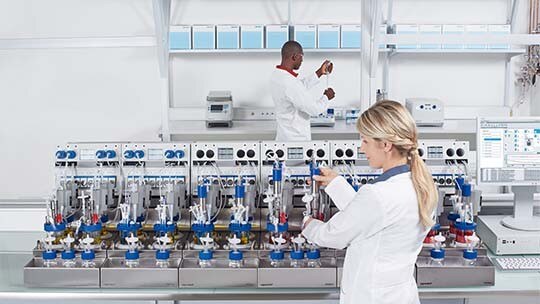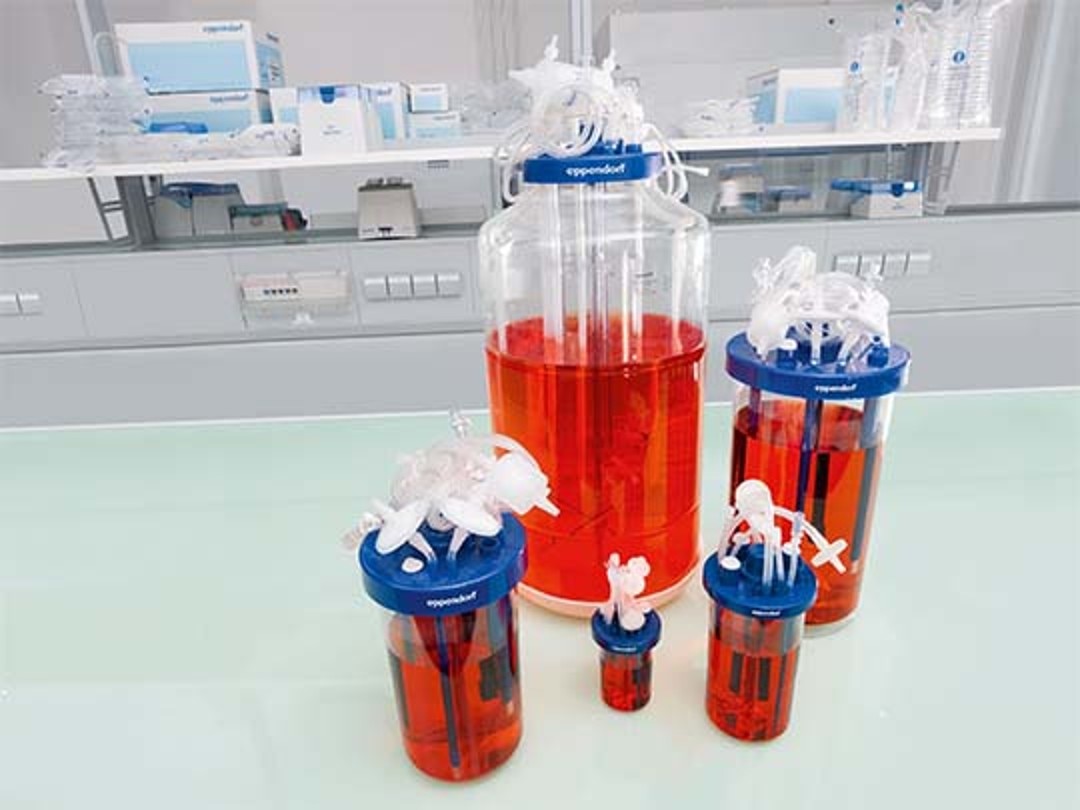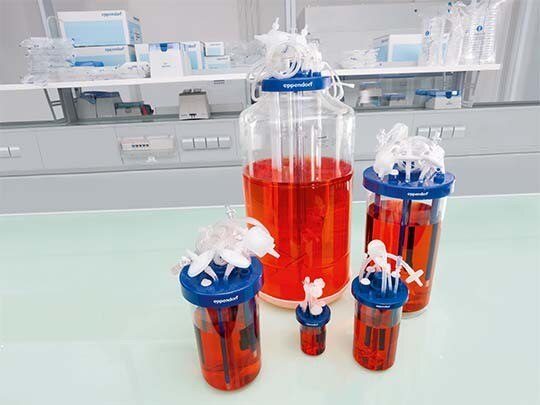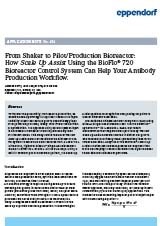MENÜ
CH | CHF
Angemeldet als:
CH | CHF
Es konnten keine Ergebnisse gefunden werden.
Such-Empfehlungen
Bioprocess Development
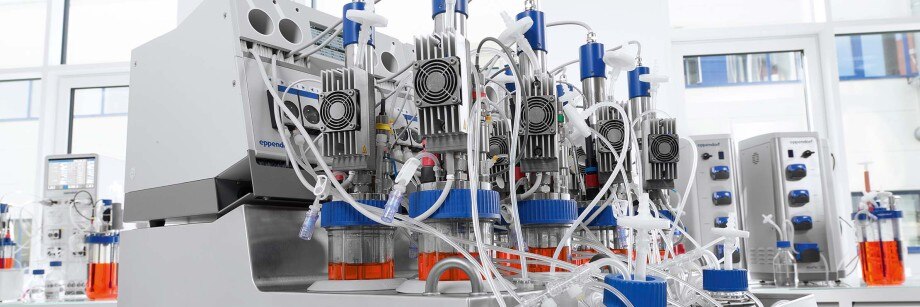
The journey to develop an upstream bioprocess to produce for example an antibody-based therapeutic drug is complex, involving process development, process optimization, and bioprocess scale-up. Learn how the right equipment can accelerate your process development through optimized, real-time parameter control, the ability to set up parallel and scalable reactions, and improved efficiency. With lower development costs and a shorter time for the product to reach the market, your business can stay competitive in an increasingly demanding market. Get to know more about how to
Mehr erfahren
Weniger lesen
Accelerate bioprocess development with parallel bioprocessing
Bioprocess development seeks to reduce costs while maximizing the quantity and quality of the desired final product. To obtain an abundant and reliable source of biologics, cell lines that produce the appropriate biologics must be mass-cultivated. To cultivate and maintain an optimal environment for this process, there are several process variables to optimize and regulate including:
Mehr erfahren
Weniger lesen
Parallel bioprocessing enables multiple experiments to be run simultaneously and like this saving time and resources.
- Eppendorf bioreactor control systems, including the DASbox® Mini Bioreactor System and DASGIP® Parallel Bioreactor Systems , are essential tools for parallel bioprocessing and the easy implementation of Design of Experiment (DoE) in antibody process development.
- Designed for parallel and simultaneous operation of multiple bioreactors, these small-scale bioreactor systems are ideal for conserving time and resources and maintaining high performance across runs.
Mehr erfahren
Weniger lesen
Design of Experiments
The use of parallel bioprocessing enables a Design of Experiments (DoE) approach, which aims to uncover the complex relationships between process parameters in bioprocess development, through altering a number of variables simultaneously. Not only does this provide fundamental details on a variety of parameters, it also analyzes their potential interactions, and identifies which parameters have the largest effects on the final outcome. Combining DoE and parallel bioprocessing provides a powerful and efficient way to optimize cell cultivation using a minimal number of experiments.
Mehr erfahren
Weniger lesen
Save time with single-use solutions
Bioreactors made of glass or stainless steel are traditionally used in the biopharmaceutical industry. However, maintenance tasks like cleaning are laborious and time-consuming and run the risk of contamination. Single-use, or disposable systems, can replace bioreactors made of glass or stainless-steel.
Mehr erfahren
Weniger lesen
Single-use bioreactors enable you to set-up your antibody development process more efficiently and with greater flexibility in your upstream workflows. The one-use nature of this equipment offers several advantages:
- Time-consuming procedures such as cleaning and sterilization are no longer necessary
- Reduced risk of cross-contamination
- Faster turnaround
Mehr erfahren
Weniger lesen
Would you like to know more about the advantages of BioBLU® Single-Use Bioreactors? Discover them here!
Mehr erfahren
Weniger lesen
How to effectively scale-up from lab to production
Scale-up strategies
Moving from research and development to production requires reliable and robust methods for scaling-up antibody production processes. However, small-scale processes do not always scale up seamlessly into larger volumes. Larger batches, different process conditions, and varying vessel characteristics can all create unforeseen problems that ultimately impact performance.
Mehr erfahren
Weniger lesen
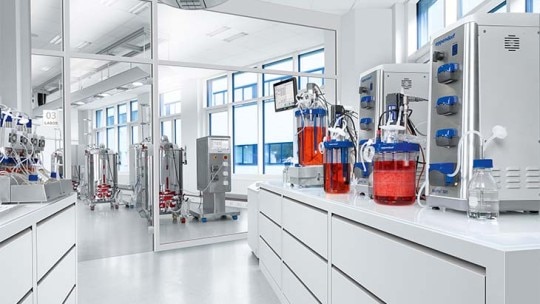
Scalable bioreactors
Eppendorf offers industry-leading bioprocess equipment to help support easy scaling up of your antibody process from small scale to pilot production scale.
- BioBLU® c Single-Use Bioreactors are rigid-walled, stirred-tank bioreactors covering a working volume range of 100 mL to 40 L.
- BioFlo® 720 bioreactor control system : Is compatible with Thermo Scientific™ HyPerforma™ 5:1 Single-Use Bioreactors with working volumes up to 2000 L.
- Reusable glass and stainless-steel bioreactors scalable from 100 mL up to 2400 L are available as well.
- BioFlo® 320 and SciVario® twin bioreactor control systems can control differently-sized bioreactors from 100 mL to 40 L. Therefore, when using one of them you do not need to familiarize yourself with a new controller while scaling up.
Mehr erfahren
Weniger lesen
Scale up assist
The Eppendorf range of bioprocess controllers come with automated features that enable efficient and reliable scale-up. The BioFlo® 320 and BioFlo® 720 bioreactor control systems include a Scale up Assist feature that automatically calculates the parameter changes needed for various vessel sizes. This greatly simplifies the process of scaling-up bioreactors for the production of biologics.
Mehr erfahren
Weniger lesen



